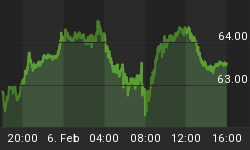Clear advance signaling of policy interest rate changes is becoming a habit in the EU. Following on the heels of last month's all-but-promised rate hike from the European Central Bank (see Dec. 1, 2005 comment), Sweden's Riksbank looks set to follow suit on Friday.
This will be the first meeting under new central bank chief Stefan Ingves, but that is unlikely to stop the monetary policy committee from tightening. Expectations are for a 25 basis point hike from the historic low of 1.50%.
The Riksbank clearly is not concerned over the current rate of inflation in Sweden. Headline consumer prices rose just 0.9% on the year in December, well below the estimated 2.2% in the Euro-zone, while the central bank's UND1X target (underlying inflation ex-indirect taxes and interest rates) came in at 1.2%. The Riksbank doesn't see inflation hitting its 2.0% target until late 2007. Rather, the committee members are concerned about the stronger growth in the economy as a whole, and in particular about the recent surge in borrowing by Swedish households.

The Riksbank had cut its repo rate by 50bp back in June when the economy seemed to be unexpectedly weakening. Reading between the lines of recent committee member comments, this move now seems too aggressive and too hasty, and it is time to start clawing it back. The economy is doing far better than had been anticipated seven months ago: export growth has been strong; private consumption is increasing steadily; business and consumer sentiment are robust; and industrial production, retail sales, and investment are all rising at a healthy clip. With interest rates so low, money supply growth also is accelerating - the annual pace of M3 growth has picked up from 4.6% at the end of 2004 to 5.6% at end-Q3 and 7.2% in November.

Overall, the economy is growing at a far healthier pace than the Euro-zone. Real GDP growth for 2005 is estimated at 2.7%, higher than the 1.3% expected for the Euro-zone, while Sweden's National Institute of Economic Research sees 2006 growth at a robust 3.6%.

At its December 2 meeting, the Riksbank's six- member monetary policy committee was evenly divided over the need for a rate hike, with outgoing head Lars Heikensten casting the deciding vote in favor of standing pat. However, the bank left little doubt that the repo rate would be raised sometime in Q1, and by year's end committee members were expressing concern over rising house prices and borrowing levels.
The clincher came last Friday, when deputy chief Irma Rosenberg (who had voted no change at the December policy meeting) stated that now is the time to "take the first step toward normalizing the level of the repo rate" - i.e., Friday's expected hike will be the first of a series.
How far and how fast the repo rate is moved upward may depend in part on the pace of further improvement in the unemployment rate (5.4% s.a. in November, down from a peak of 6.9%). This is an especially sensitive topic with a general election due in September. The ruling Social Democrat government of PM Goran Persson, which has promised to bring down the jobless level, is currently tied with the main opposition Moderates in the opinion polls. The more rapid the improvement in the job market, the more inclined the Riksbank will be to keep tightening - and the more annoyed the Social Democrat government will be in response.
Meanwhile, the shift in interest rate expectations has reversed the crown's trend against the euro and the dollar over the past two months. The Swedish currency had fallen steadily against both counterparts into Q4 2005, but is now flirting with three- month highs.

How much further the Swedish crown might rise over 2006 will depend largely on the interest rate differential between the Riksbank and the ECB, and in particular on relative changes in their inflation-adjusted interest rates. As of December, the real (headline inflation adjusted) repo rate in Sweden stood at 0.6% - the comparable rate in the Euro-zone was a negligible 0.05%. If Sweden's tightening outpaces that of the Euro-zone while its inflation rate remains relatively subdued - both of which seem likely for now - the crown will climb still higher. Key to watch will be the tone of the Riskbank's announcement on Friday, and that of the ECB at its next meeting on February 2.















